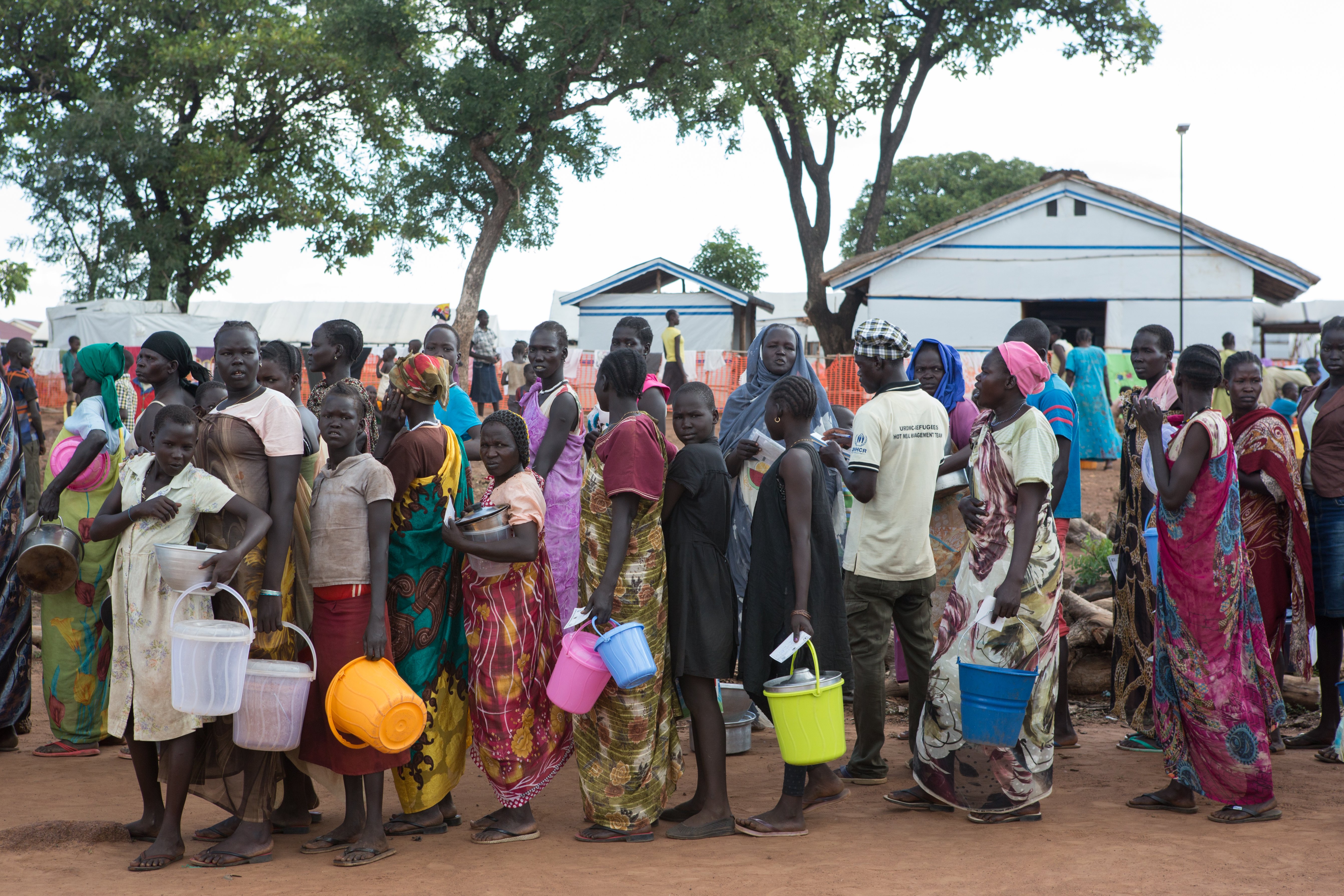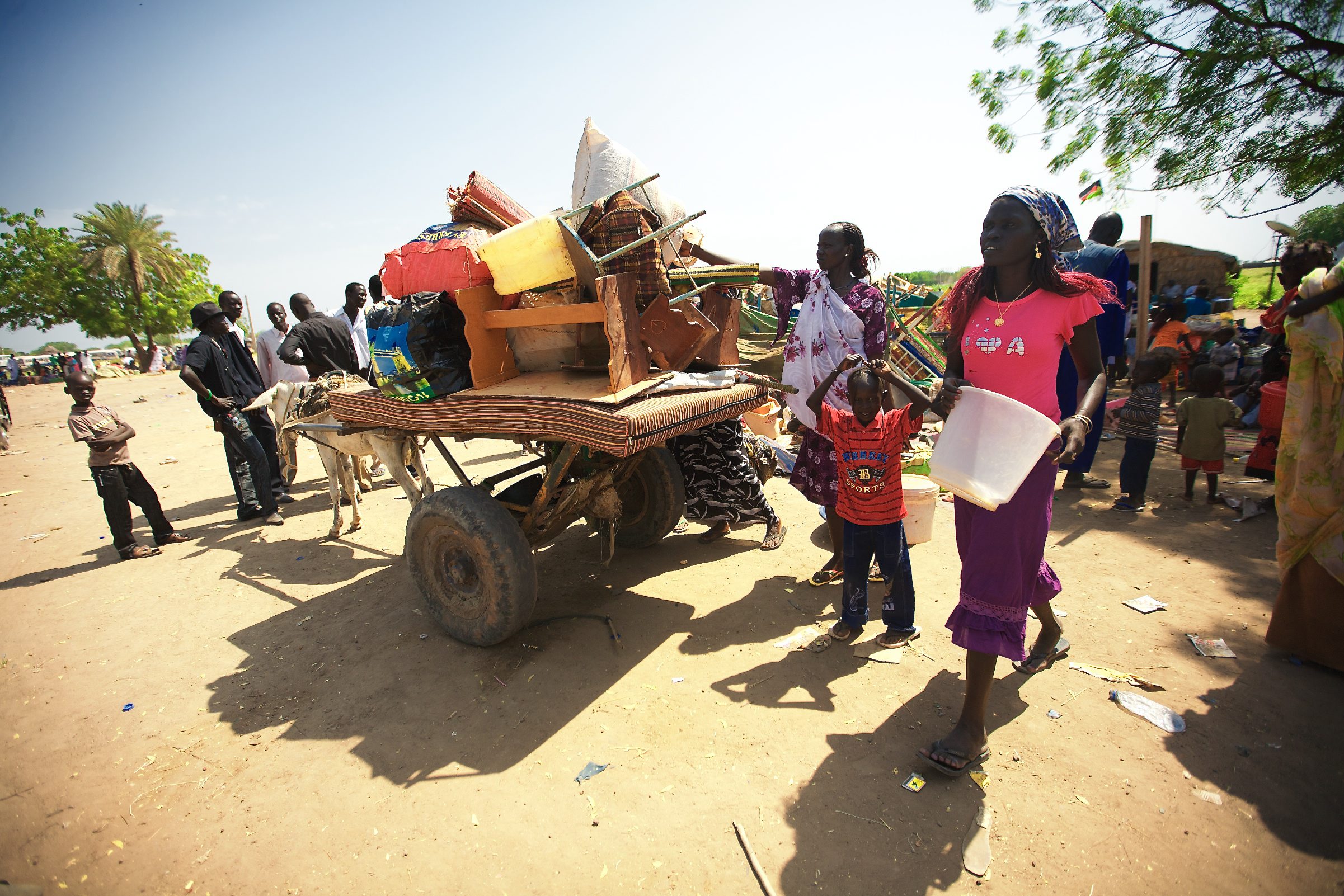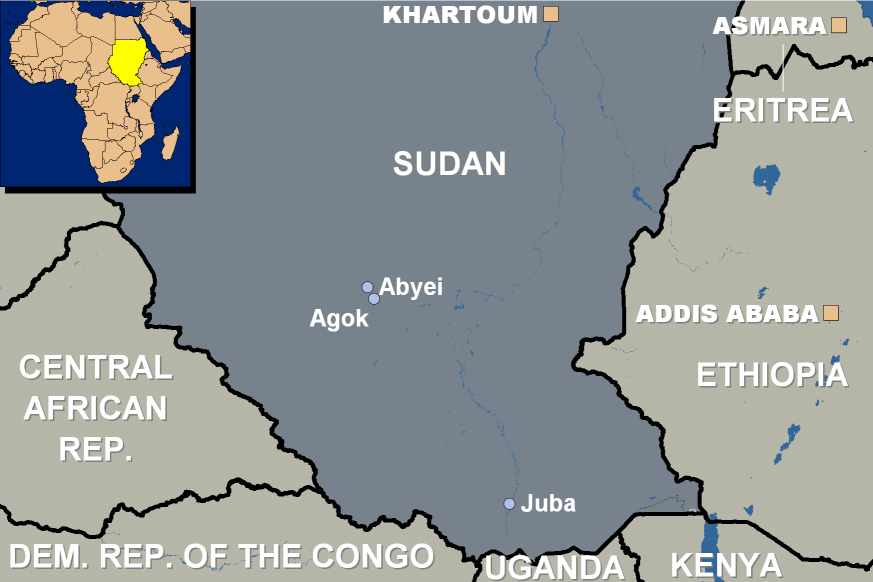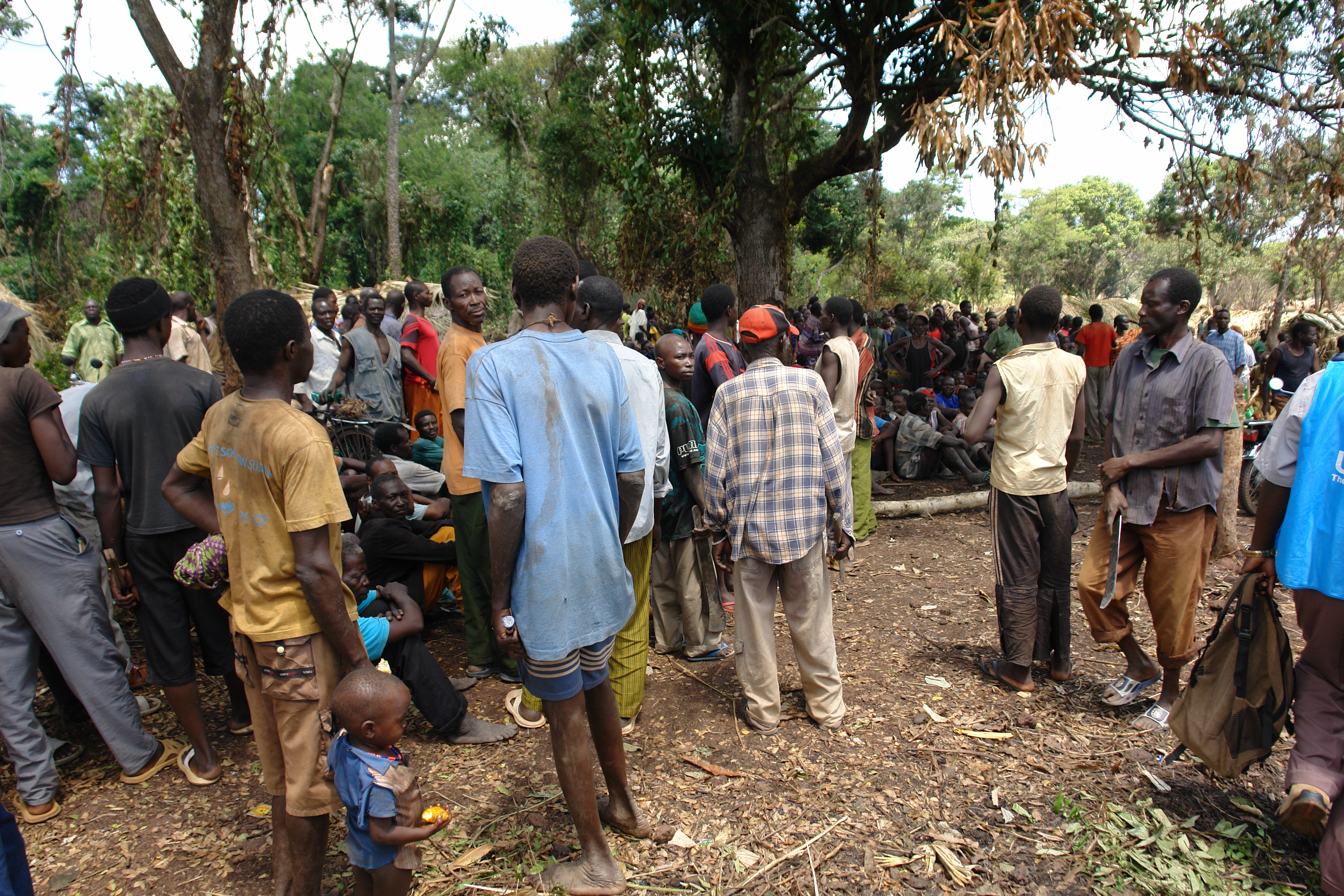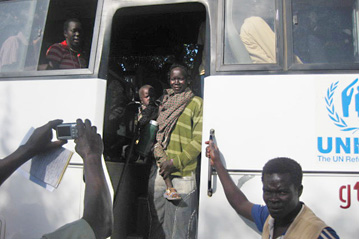South Sudanese in DRC choosing to go home
South Sudanese in DRC choosing to go home
Some 400 Sudanese refugees currently in north-eastern Democratic Republic of the Congo (DRC) are scheduled to return home to South Sudan tomorrow (Wednesday). They will travel on a UNHCR convoy departing from the Aba area of DRC's Oriental Province. Most of the South Sudanese refugees in the DRC are housed in sites in the Aba area.
Many Sudanese refugees are eager to return to their country. The conclusion of a tripartite agreement between Sudan, the DRC and UNHCR in January paved the way for organised, cross-border voluntary returns. Out of some 5,000 Sudanese refugees accommodated in Aba, UNHCR and its partners have so far registered 3,200 refugees who expressed a wish to return.
This substantial turnout for voluntary repatriation is not the only sign that Sudanese refugees are keen to go home. Many of them already returned spontaneously on their own. Earlier this year, we organised "go-and-see visits" for a number of community leaders. They were able to see their villages, assess living conditions and meet with their home communities and the local authorities in South Sudan. Subsequently, they shared their experiences and impressions with the other refugees back in the DRC.
In terms of logistics, UNHCR faces serious challenges as the road conditions in the area are poor. For the first 400 Aba returnees, tomorrow's journey home will start with a transfer from the refugee sites to a transit centre in Aba, where they will be able to rest for the night and receive a hot meal. The next day, the convoy will move onwards to the transit centre in south Sudan, where the returnees will spend the night before embarking on the final leg of the trip to their home villages.
UNHCR staff in South Sudan will provide returning refugees with basic material assistance, including construction materials, household items and a three-month food ration supplied by the World Food Programme. Regular return movements from Aba are expected to continue over the coming months at a rate of one convoy a week.
Earlier this year, UNHCR organised several return movements to South Sudan from the Aru area, also in north-eastern DRC, which brought home more than 1,600 refugees. DRC still hosts some 13,000 Sudanese refugees, many of them receiving humanitarian assistance from UNHCR and its partners.
We have been repatriating refugees from neighbouring countries since the end of last year, starting with Kenya and then followed by Ethiopia, Uganda, the DRC and the Central African Republic. So far, we have assisted 13,000 refugees to return to South Sudan.
There are still 350,000 Sudanese refugees in camps in neighbouring countries - some for as long as two decades - and 4 million internally displaced persons from South Sudan, half in the south itself and half in the Khartoum and Kassala areas.
In addition to those repatriated by UNHCR, an estimated 100,000 refugees from neighbouring countries returned to South Sudan on their own before or soon after the signing of the Comprehensive Peace Agreement in January 2005 that ended 21 years of war.

